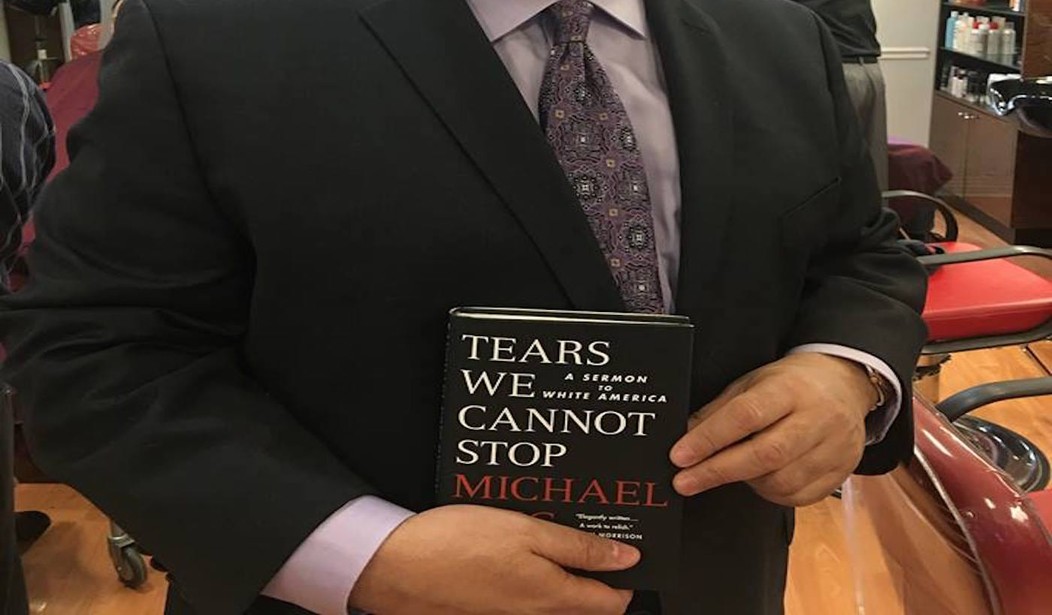Michael Eric Dyson – race hustler extraordinaire – has long been in favor of reparations to black Americans for the crimes of segregation and slavery. There was a time when the discussion elicited much interest and discussion, but we were a lot closer to the sins of Jim Crow and slavery in the 1980s than we are now in 2017.
With so many victim groups fighting for a position in the food-chain of outrage, reparations seem like stale discussion at this point. Perhaps realizing that the writing is on the wall as far as any government action is ever concerned, the “Tears We Cannot Stop: A Sermon to White America” (oh, doesn’t that sound like something white people want to read?) author has come up with an even better idea for absolving the sin of American racism – Individual reparations.
In recent interview with the New York Times, Dyson said he thinks the best way for white Americans to pay for the sin of skin is to bear individual responsibility by paying their black employees or service providers double what they would pay anyone else.
At the end of your sermon, you do a “benediction” section, in which you talk about making reparations on the local and individual level: donating to groups like the United Negro College Fund or a scholarship program, but also, to cite your example from the book, paying “the black person who cuts your grass double what you might ordinarily pay.” That gave me pause! Good! I used to say in church, “If the sermon ain’t making you a little bit uncomfortable, it ain’t effective.” Look, if it doesn’t cost you anything, you’re not really engaging in change; you’re engaging in convenience. You’re engaged in the overflow. I’m asking you to do stuff you wouldn’t ordinarily do. I’m asking you to think more seriously and strategically about why you possess what you possess.
I agree with reparations, but maybe this is my white privilege speaking: I can’t imagine actually doing that. That is what I meant by an I.R.A.: an individual reparations account. You ain’t got to ask the government, you don’t have to ask your local politician — this is what you, an individual, conscientious, “woke” citizen can do.
Two things are interesting about this exchange. First, Dyson defines a “woke” white person as someone who gives a random black person more money than they deserve for a job they may or may not have done well. As the mother of a black son, I do not want anyone giving him more money than he has rightfully earned just by virtue of his race. That’s ridiculous and unhelpful. I need for him to experience the consequences of his work ethic. If he does a good job he should be compensated for that. If he does a poor job, it should affect him negatively. I would be royally offended if my kid told me some guilty white person gave him extra money for being black. Talk about “engaging in convenience”!
“Oh, here’s your money, little black boy! Toot-a-loo! I’m free from sin now.”
The other point of interest is how the guilty, white interviewer (Ana Marie Cox) is all on board for “reparations” but feels uncomfortable about personally providing them. While I too find the idea abhorrent, the interviewer is employing the typical mindset of the modern social justice warrior – they’re all for “charity” as long it is comes at the end of a an I.R.S. -backed spear pointed at the pocket of their neighbors.
Cox goes on to cleverly point out that even the Koch Brothers have donated $25 million to the United Negro College Fund, but that surely can’t absolve them (those vaguely evil, demonic tools of the right-wing!) from their sins of white privilege.
But charity can’t be the end of it, right? The Koch brothers gave the United Negro College Fund $25 million, but I doubt you would consider them “woke.” No. Martin Luther King Jr. believed that charity is a poor substitute for justice. But I ain’t turning $25 million down.
Let’s just suppose some white Republican did offer Dyson $25 million, which he so gleefully pointed out he would never turn down. Who is the bigger phony? The white person who supposed that a bribe would wash away all their historical guilt without requiring any further effort? Or the black man who takes the money knowing full well he’ll offer no absolution for it and that he is engaging in a financial exchange with an entity he deems to be anti-black and anti-social justice?
The views represented in this interview are both – to use a technical term of critique – garbage.
A pox on both your houses.













Join the conversation as a VIP Member